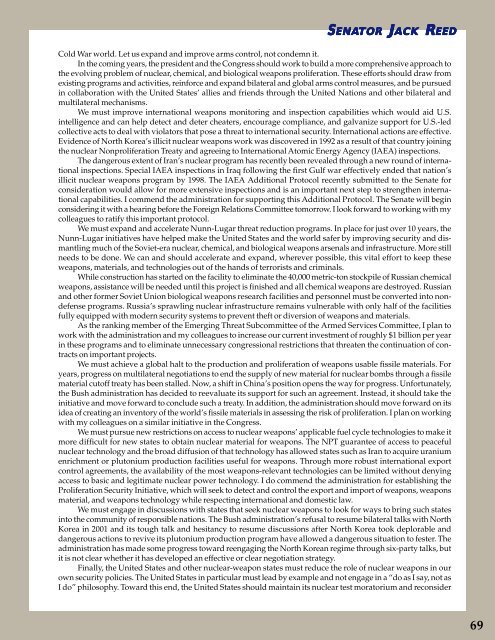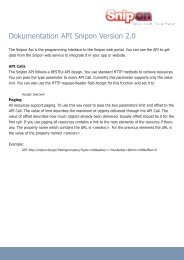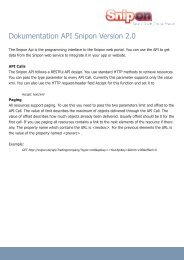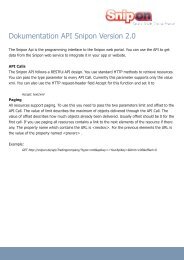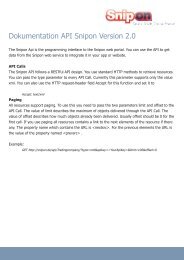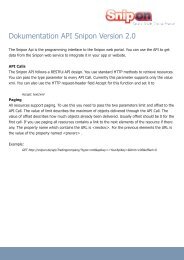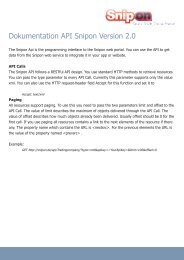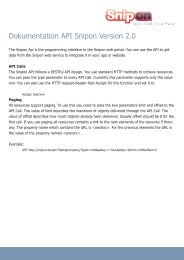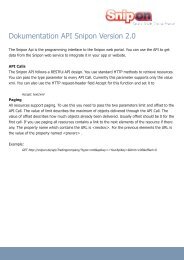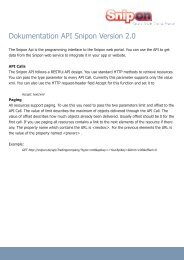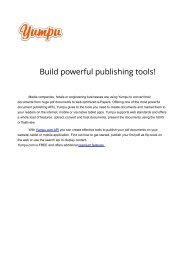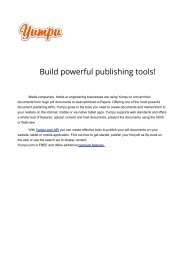test_pdf.pdf
You also want an ePaper? Increase the reach of your titles
YUMPU automatically turns print PDFs into web optimized ePapers that Google loves.
SENA<br />
ENATOR<br />
JACK<br />
REED<br />
Cold War world. Let us expand and improve arms control, not condemn it.<br />
In the coming years, the president and the Congress should work to build a more comprehensive approach to<br />
the evolving problem of nuclear, chemical, and biological weapons proliferation. These efforts should draw from<br />
existing programs and activities, reinforce and expand bilateral and global arms control measures, and be pursued<br />
in collaboration with the United States’ allies and friends through the United Nations and other bilateral and<br />
multilateral mechanisms.<br />
We must improve international weapons monitoring and inspection capabilities which would aid U.S.<br />
intelligence and can help detect and deter cheaters, encourage compliance, and galvanize support for U.S.-led<br />
collective acts to deal with violators that pose a threat to international security. International actions are effective.<br />
Evidence of North Korea’s illicit nuclear weapons work was discovered in 1992 as a result of that country joining<br />
the nuclear Nonproliferation Treaty and agreeing to International Atomic Energy Agency (IAEA) inspections.<br />
The dangerous extent of Iran’s nuclear program has recently been revealed through a new round of international<br />
inspections. Special IAEA inspections in Iraq following the first Gulf war effectively ended that nation’s<br />
illicit nuclear weapons program by 1998. The IAEA Additional Protocol recently submitted to the Senate for<br />
consideration would allow for more extensive inspections and is an important next step to strengthen international<br />
capabilities. I commend the administration for supporting this Additional Protocol. The Senate will begin<br />
considering it with a hearing before the Foreign Relations Committee tomorrow. I look forward to working with my<br />
colleagues to ratify this important protocol.<br />
We must expand and accelerate Nunn-Lugar threat reduction programs. In place for just over 10 years, the<br />
Nunn-Lugar initiatives have helped make the United States and the world safer by improving security and dismantling<br />
much of the Soviet-era nuclear, chemical, and biological weapons arsenals and infrastructure. More still<br />
needs to be done. We can and should accelerate and expand, wherever possible, this vital effort to keep these<br />
weapons, materials, and technologies out of the hands of terrorists and criminals.<br />
While construction has started on the facility to eliminate the 40,000 metric-ton stockpile of Russian chemical<br />
weapons, assistance will be needed until this project is finished and all chemical weapons are destroyed. Russian<br />
and other former Soviet Union biological weapons research facilities and personnel must be converted into nondefense<br />
programs. Russia’s sprawling nuclear infrastructure remains vulnerable with only half of the facilities<br />
fully equipped with modern security systems to prevent theft or diversion of weapons and materials.<br />
As the ranking member of the Emerging Threat Subcommittee of the Armed Services Committee, I plan to<br />
work with the administration and my colleagues to increase our current investment of roughly $1 billion per year<br />
in these programs and to eliminate unnecessary congressional restrictions that threaten the continuation of contracts<br />
on important projects.<br />
We must achieve a global halt to the production and proliferation of weapons usable fissile materials. For<br />
years, progress on multilateral negotiations to end the supply of new material for nuclear bombs through a fissile<br />
material cutoff treaty has been stalled. Now, a shift in China’s position opens the way for progress. Unfortunately,<br />
the Bush administration has decided to reevaluate its support for such an agreement. Instead, it should take the<br />
initiative and move forward to conclude such a treaty. In addition, the administration should move forward on its<br />
idea of creating an inventory of the world’s fissile materials in assessing the risk of proliferation. I plan on working<br />
with my colleagues on a similar initiative in the Congress.<br />
We must pursue new restrictions on access to nuclear weapons’ applicable fuel cycle technologies to make it<br />
more difficult for new states to obtain nuclear material for weapons. The NPT guarantee of access to peaceful<br />
nuclear technology and the broad diffusion of that technology has allowed states such as Iran to acquire uranium<br />
enrichment or plutonium production facilities useful for weapons. Through more robust international export<br />
control agreements, the availability of the most weapons-relevant technologies can be limited without denying<br />
access to basic and legitimate nuclear power technology. I do commend the administration for establishing the<br />
Proliferation Security Initiative, which will seek to detect and control the export and import of weapons, weapons<br />
material, and weapons technology while respecting international and domestic law.<br />
We must engage in discussions with states that seek nuclear weapons to look for ways to bring such states<br />
into the community of responsible nations. The Bush administration’s refusal to resume bilateral talks with North<br />
Korea in 2001 and its tough talk and hesitancy to resume discussions after North Korea took deplorable and<br />
dangerous actions to revive its plutonium production program have allowed a dangerous situation to fester. The<br />
administration has made some progress toward reengaging the North Korean regime through six-party talks, but<br />
it is not clear whether it has developed an effective or clear negotiation strategy.<br />
Finally, the United States and other nuclear-weapon states must reduce the role of nuclear weapons in our<br />
own security policies. The United States in particular must lead by example and not engage in a “do as I say, not as<br />
I do” philosophy. Toward this end, the United States should maintain its nuclear <strong>test</strong> moratorium and reconsider<br />
69<br />
69


